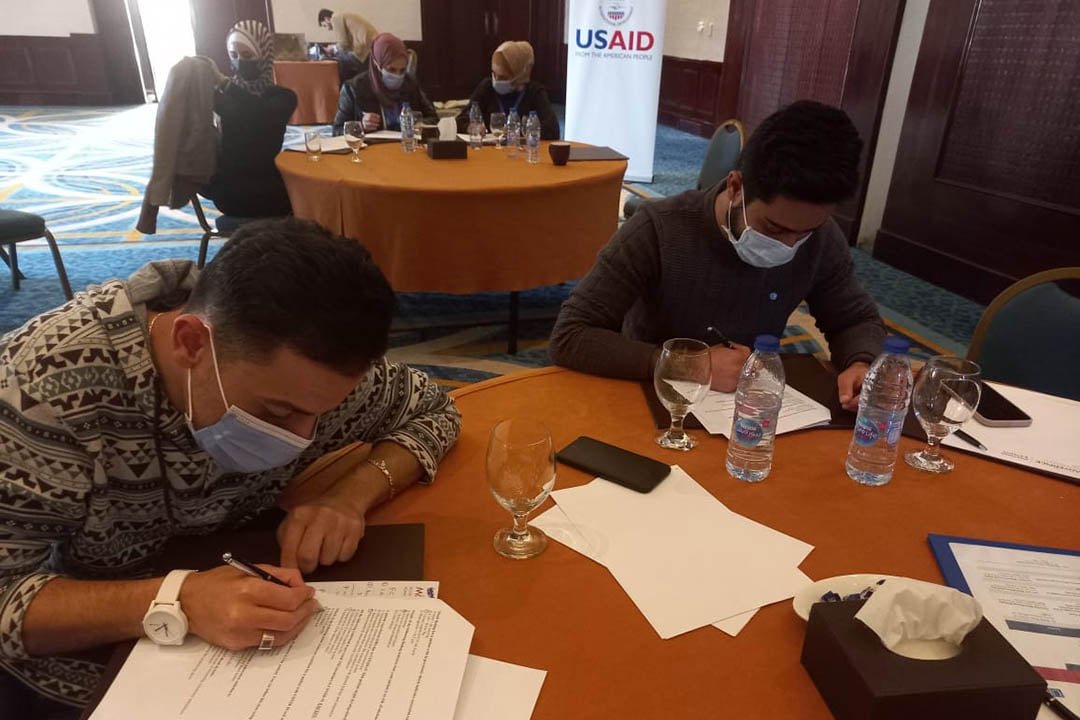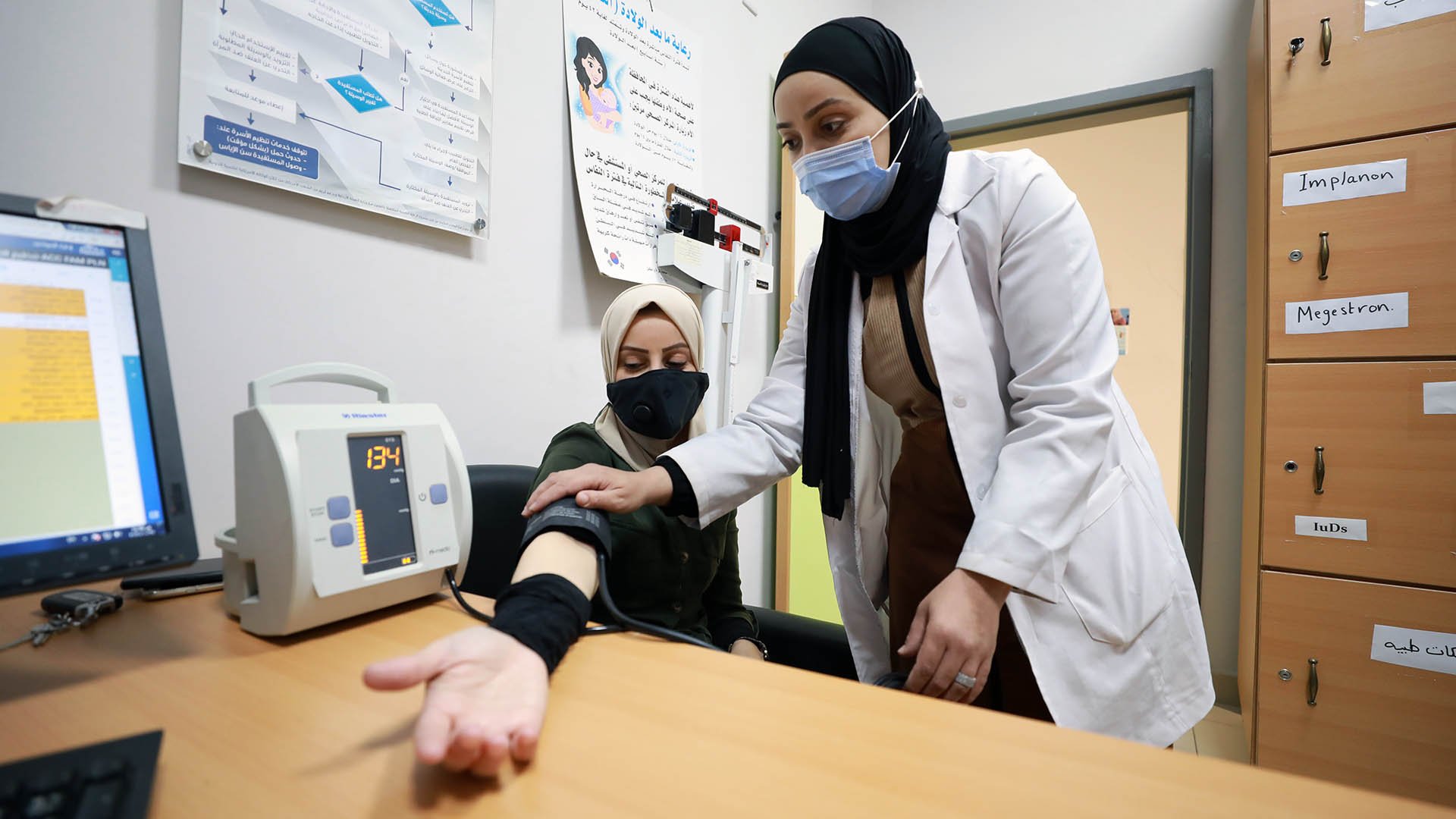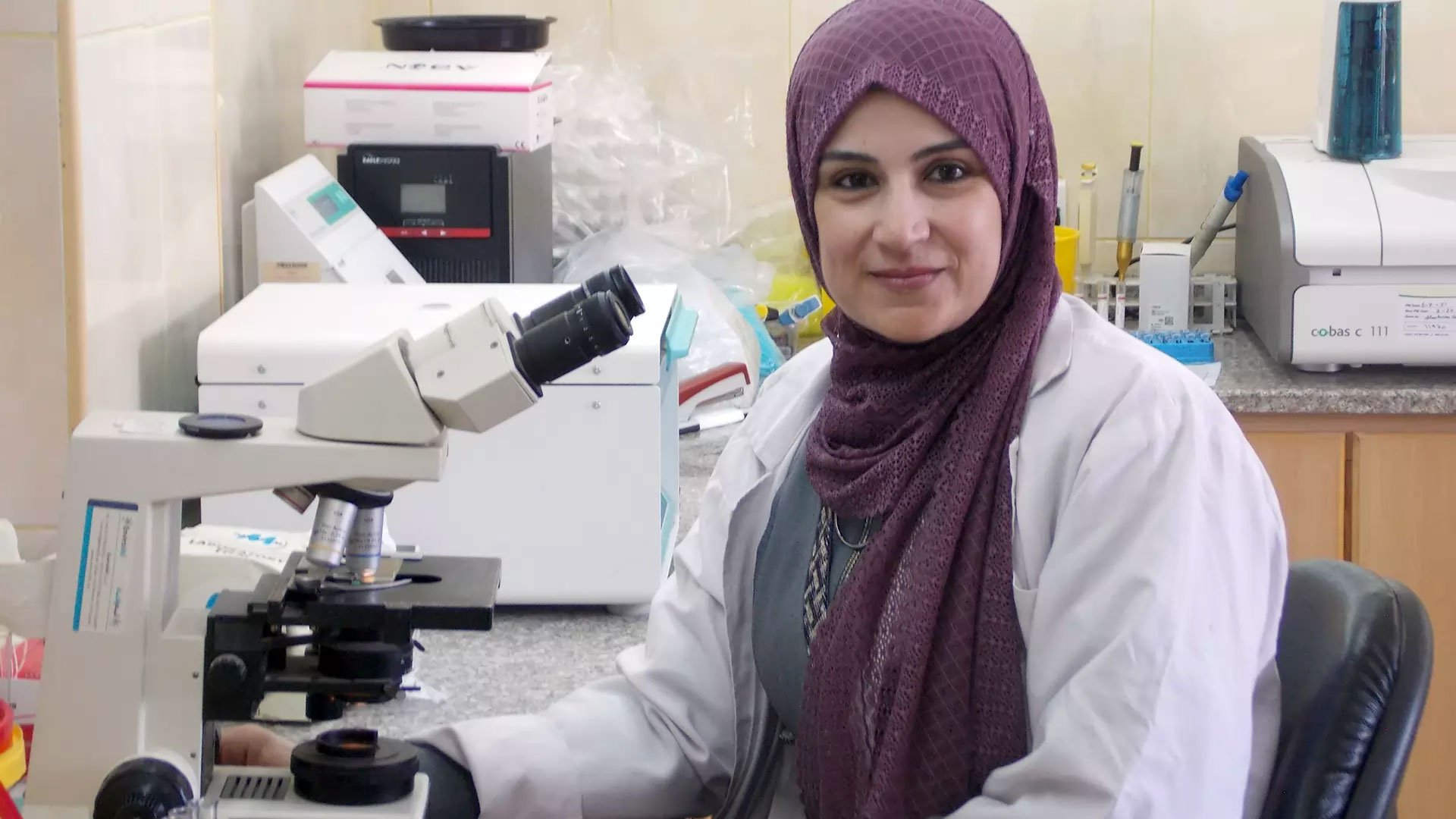COVID-19 spikes have taxed the global health workforce in unprecedented ways. In Jordan, the latest resurgence of COVID-19 cases – including moderate and severe cases – exposed a need for advanced training to enhance nurses’ skills and improve knowledge to provide care for critically ill patients with COVID-19.
Explained Director of Aqaba Field Hospital, Dr. Kamal Hurani, “In the past waves of the pandemic, we experienced increased numbers of confirmed cases, yet a decrease in required critical care. Today, the number of total cases has dropped, yet cases requiring critical care have increased.”
In collaboration with the Jordanian Ministry of Health’s Nursing Directorate, the USAID Health Services Quality Accelerator Activity in Jordan offered two three-day training workshops from January 8-10 and January 11-13 on managing patients with moderate and severe COVID-19.
Targeting Critical Care Thinking Skills
The training aimed to equip frontline nurses caring for critically ill COVID-19 patients with evidence-based knowledge and best practices to strengthen the delivery of care in intensive care units.
Adopting problem-based learning principles, a critical reasoning approach, and evidence-based critical care practices, the training provided a refresher on basic anatomy and physiology of vital body systems, respiratory failure and ventilator management, shock and hemodynamics, pharmacotherapy for critical illnesses, and renal replacement therapy. Participants put theory into practice through clinical case scenarios.
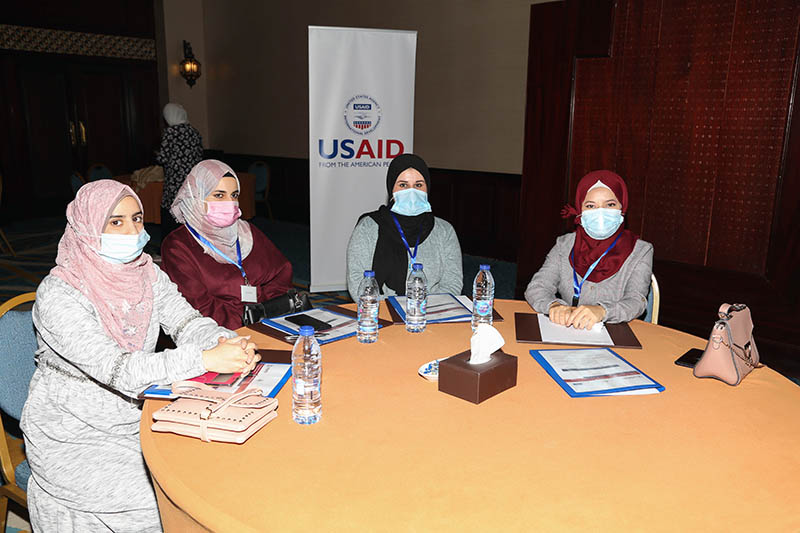
The training equipped nurses with the knowledge and skills to recognize patients with moderate to severe symptoms associated with COVID-19, deliver appropriate treatment, monitor critically ill patients, and improve oxygen therapy.
Likewise, the training corrected misconceptions and improved nursing skills in clinical decision-making, clinical assessment, pain assessment, and emergency management of common electrocardiogram dysrhythmias.
A Stronger Nursing Workforce Redeploys
Fifty nurses have been trained to date. Consistent with the ratio of male to female nurses in Jordan, approximately half of the participants were male nurses. Nearly 80% of the nurses had not received any previous training on COVID-19 critical care, despite having been deployed to critical care units during the pandemic.
Majd Ghanem, a recent graduate-turned staff nurse at Aqaba Field Hospital, participated in the training. “The knowledge provided corrected misconceptions I previously had. I knew how to recognize symptoms and signs of a severe case but now I know how to respond.”
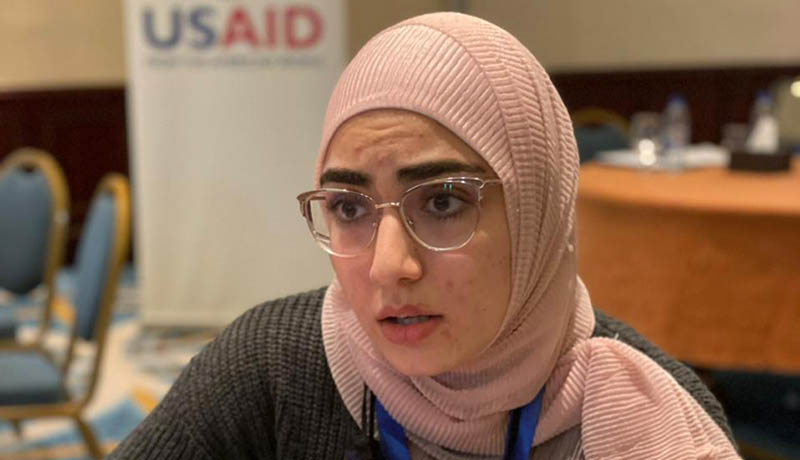
At the training, Director of the Nursing Directorate, Dr. Nidal Al Nsour, extended thanks to USAID. “We are delighted about the activity’s prompt response for this timely and needed training and are looking to expand this skill-based training beyond the COVID-19 context to make sure our nursing force is prepared to meet both current and future health care challenges.”
